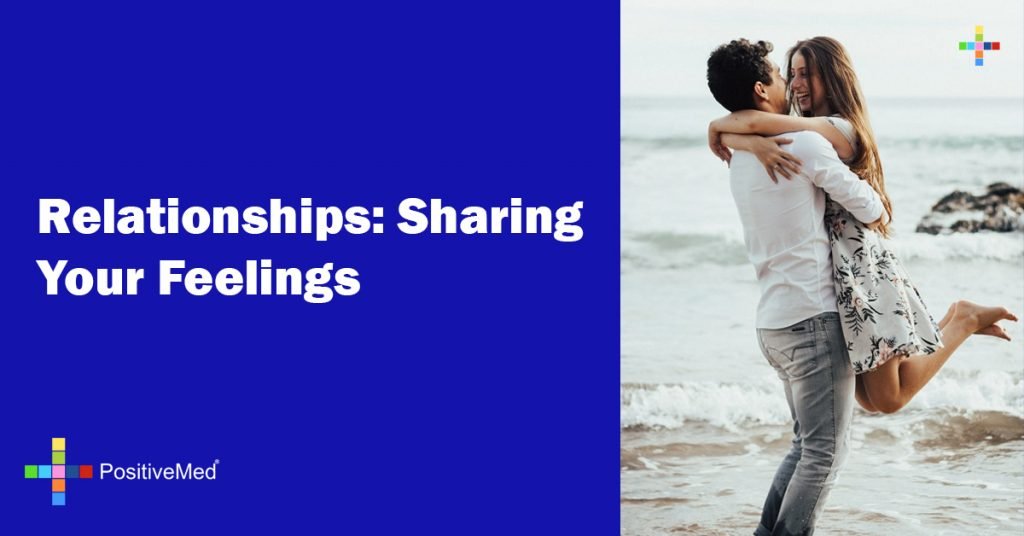
Relationships: Sharing Your Feelings
How often have you heard that it’s good to “share your feelings”? How often have you shared your feelings and it backfired on you, with the other person becoming angry and defensive? Perhaps you find yourself saying “But I’m just sharing my feelings!”
The problem is that we can share our feelings for a number of different reasons, depending upon our intention. The question to ask yourself is, “Why am I sharing my feelings?”
Sometimes we share our feelings just to give information, such as “I’m feeling really stressed. I’m going to go out for a run.” In this case, you are sharing your feeling of being stressed, and letting the other person know what you are going to do about your feelings.
But what if you just said, “I’m feeling really stressed.” Why would you want your partner to know that?
If you say, “I’m feeling really stressed. I’ve been doing some inner work and it’s not helping. Could you help me explore what this stress is about?”, then your intent is to learn. You want to take responsibility for your own feelings and you want help in doing so. Your partner may or may not be able or willing to help you, but your statement is not a pull on them to take care of your feelings.
However, if you just say, “I’m feeling really stressed,” and you don’t ask for help or tell your partner what you are going to do about it, then the statement is a pull on your partner to take responsibility for your feelings. Your partner may feel engulfed by the statement and withdraw, or may feel irritated and get parental and judgmental with you.
Here is another common example: Your partner gets angry with you and says some unloving things. You take it personally and feel hurt. The fact that you feel hurt is because you took what your partner said personally, instead of seeing that your partner’s unloving behavior is his or her issue. You feel upset with your partner for hurting you and then you tell your partner your feelings, saying, “I feel hurt by what you said.” Your intent in telling your partner your feelings is to make him or her responsible for your feelings. Your partner may respond with, “That’s your problem!” or get defensive and explain his or her behavior to you, justifying their unloving behavior. In either case, you do not feel better. He or she might apologize and you feel better for the moment, but the real issue of you taking things personally has not been addressed, and you will continue to be a victim of others’ behavior.

If you were to take responsibility for your own feelings, you would be very compassionate toward yourself for the heartache of another’s unloving behavior, allowing this sadness to move through you. The sadness of another’s unloving behavior is very different than getting your feelings hurt due to taking their behavior personally.
Anytime we share our feeling with the intent of getting someone to make us feel better, our intent is to control rather than to learn and take responsibility for ourselves. We are making another responsible for our feelings instead of doing our Inner work and discovering our beliefs and behavior that are hurting us and causing us pain.
Next time you want to share your feelings, be sure to ask yourself why you want to share them. Is your intent to control or to learn?
About The Author :
 Margaret Paul, Ph.D. is a best-selling author, relationship expert & Inner Bonding® facilitator. She has counseled individuals & couples since 1968. She is the author/co-author of eight books, including the internationally best-selling Do I Have To Give Up Me To Be Loved By You?, Healing Your Aloneness, Inner Bonding, and Do I Have To Give Up Me To Be Loved By God? She is the co-creator of the powerful Inner Bonding® healing process, recommended by actress Lindsay Wagner and singer Alanis Morissette, and featured on Oprah, as well as on the unique and popular website Inner Bonding & of the transformational self-healing/conflict resolution software program, SelfQuest®. Click here for a FREE Inner Bonding course.
Margaret Paul, Ph.D. is a best-selling author, relationship expert & Inner Bonding® facilitator. She has counseled individuals & couples since 1968. She is the author/co-author of eight books, including the internationally best-selling Do I Have To Give Up Me To Be Loved By You?, Healing Your Aloneness, Inner Bonding, and Do I Have To Give Up Me To Be Loved By God? She is the co-creator of the powerful Inner Bonding® healing process, recommended by actress Lindsay Wagner and singer Alanis Morissette, and featured on Oprah, as well as on the unique and popular website Inner Bonding & of the transformational self-healing/conflict resolution software program, SelfQuest®. Click here for a FREE Inner Bonding course.





